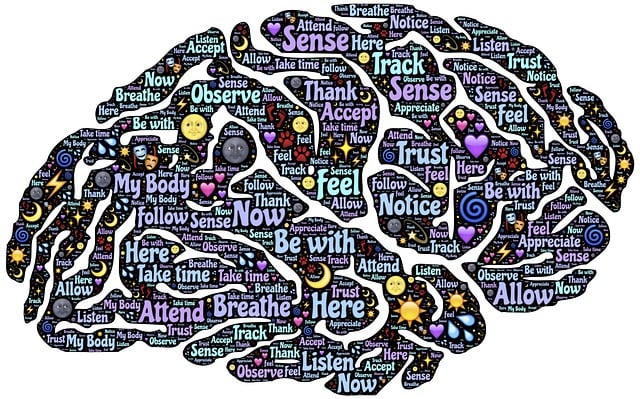Longmont Crisis Counseling Therapy (LCRT) provides specialized trauma support through trained professionals offering evidence-based practices, stress management techniques, and safe spaces for healing. They assess traumatic events, employ CBT, EMDR, mindfulness, and other methods to treat PTSD, and collaborate with community partners to offer holistic mental health services. LCRT also produces educational content, promotes open conversations about trauma, and advocates for accessible mental health policies, ultimately empowering individuals and communities to lead fulfilling lives despite traumatic experiences.
Trauma is a significant challenge affecting individuals across all demographics, with profound impacts on mental health and overall well-being. This article explores trauma support services provision, focusing on the critical role of Longmont Crisis Counseling Therapy (LCCT) in offering specialized care. We delve into understanding trauma, its assessment in therapeutic settings, effective interventions, and community resources that collaborate for comprehensive trauma-informed care. By examining these aspects, we highlight LCCT’s contribution to healing and recovery.
- Understanding Trauma and Its Impact on Individuals
- The Role of Longmont Crisis Counseling Therapy in Support
- Identifying and Assessing Trauma in a Therapeutic Setting
- Effective Interventions and Treatment Approaches
- Community Resources and Collaboration for Comprehensive Care
Understanding Trauma and Its Impact on Individuals

Trauma is a profound and complex experience that can leave lasting effects on individuals’ mental health and well-being. It’s important to understand that trauma isn’t just a one-time event; it can result from various situations, such as accidents, violence, or prolonged exposure to distressing events. The impact of trauma extends beyond the immediate experience, affecting individuals’ ability to manage stress, regulate emotions, and maintain healthy relationships in the long term.
In Longmont Crisis Counseling Therapy, professionals are trained to recognize the signs and symptoms of trauma and provide effective support. This includes conducting a thorough risk assessment for mental health professionals to ensure safe and supportive interactions with clients. By implementing evidence-based practices, therapists help individuals navigate emotional healing processes, promote resilience, and develop healthy coping mechanisms. Stress management techniques are often integral to these processes, enabling individuals to regain control and lead fulfilling lives despite their traumatic experiences.
The Role of Longmont Crisis Counseling Therapy in Support

Longmont Crisis Counseling Therapy plays a pivotal role in supporting individuals and communities grappling with trauma. With a dedicated team of professionals, they offer specialized services tailored to address the unique needs of those affected by traumatic events. By providing a safe and non-judgmental space, Longmont Crisis Counseling Therapy facilitates healing and empowers individuals to regain control over their lives.
Through various therapeutic approaches, including evidence-based techniques for mood management and burnout prevention, they help clients develop coping strategies and enhance mental wellness. Additionally, the organization contributes to the community’s resilience by offering Mental Wellness Podcast Series Production, which disseminates valuable information and promotes open conversations about trauma and recovery.
Identifying and Assessing Trauma in a Therapeutic Setting

In a therapeutic setting, identifying and assessing trauma is a delicate yet crucial process, often the first step toward healing for individuals seeking support, such as those availing of Longmont Crisis Counseling Therapy services. Therapists play a vital role in recognizing the signs and symptoms of trauma, which can manifest differently in each person. This involves creating a safe and non-judgmental environment to encourage clients to share their experiences openly. Assessing trauma history includes exploring past events that have caused distress, understanding their impact on an individual’s life, and identifying any ongoing triggers.
By incorporating techniques like mental wellness journaling exercises and compassion cultivation practices, therapists can facilitate a deeper exploration of traumatic memories. Public awareness campaigns development around these topics is essential to foster open conversations about trauma. This, in turn, helps individuals understand that they are not alone in their struggles and encourages them to seek the necessary support, ultimately improving access to care for those in need, such as those seeking crisis counseling in Longmont.
Effective Interventions and Treatment Approaches

Effective interventions and treatment approaches play a pivotal role in providing trauma support services. Longmont Crisis Counseling Therapy, for instance, integrates a range of evidence-based practices to address complex trauma and promote healing. These include cognitive behavioral therapy (CBT), eye movement desensitization and reprocessing (EMDR), and mindfulness techniques, which have shown promising results in helping individuals process traumatic memories, manage symptoms of post-traumatic stress disorder (PTSD), and develop healthy coping strategies.
The Crisis Intervention Guidance offered by these services equips professionals with the necessary tools to respond promptly and effectively during crises. By combining this guidance with tailored Stress Reduction Methods, trauma survivors can learn to regulate their emotions, enhance their resilience, and gradually reintegrate into daily life. Trauma Support Services in Longmont prioritize individualized care, ensuring that each client receives personalized treatment plans that cater to their unique needs and challenges.
Community Resources and Collaboration for Comprehensive Care

In the context of trauma support services provision, community resources and collaboration play a pivotal role in ensuring comprehensive care. Longmont Crisis Counseling Therapy (LCRT) serves as a beacon for individuals seeking solace from traumatic experiences. By fostering partnerships with local organizations, schools, and healthcare providers, LCRT expands its reach beyond traditional therapy settings. This collaborative approach facilitates a holistic understanding of trauma’s impact on individuals and communities, addressing not just the symptoms but also the underlying social determinants of mental health.
The integration of Mental Health Policy Analysis and Advocacy within this framework is crucial. By advocating for policies that promote accessible and affordable Self-Care Routine Development for Better Mental Health, LCRT contributes to a more resilient and supportive community fabric. This collaborative effort not only enhances the availability of trauma support services but also empowers individuals with tools and resources to actively manage their mental health, ultimately fostering a culture of healing and resilience within Longmont and beyond.
Trauma support services are vital for empowering individuals to heal from their experiences. As discussed, understanding trauma is the first step towards effective intervention. The article has highlighted how Longmont Crisis Counseling Therapy plays a crucial role in providing specialized care, while also emphasizing the importance of identifying and assessing trauma in therapeutic settings. By employing evidence-based interventions and fostering community collaboration, comprehensive care can be delivered to those who have experienced traumatic events. This holistic approach ensures that individuals receive the necessary support to navigate their healing journey and build resilience.











